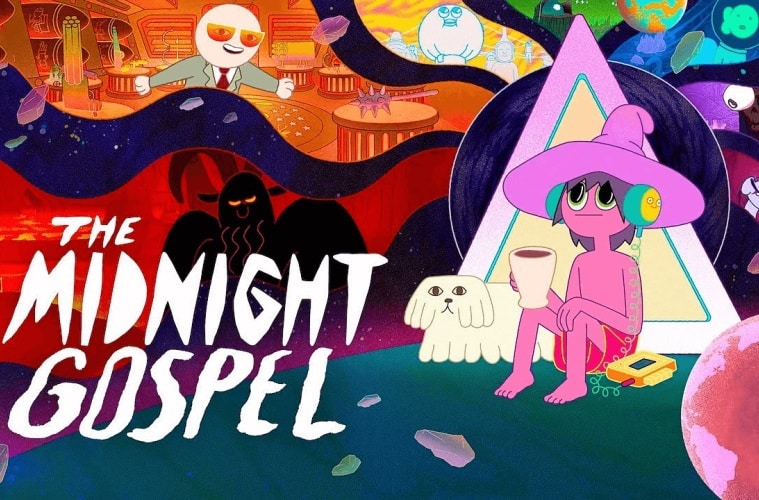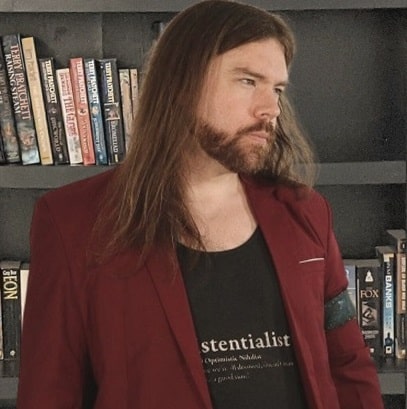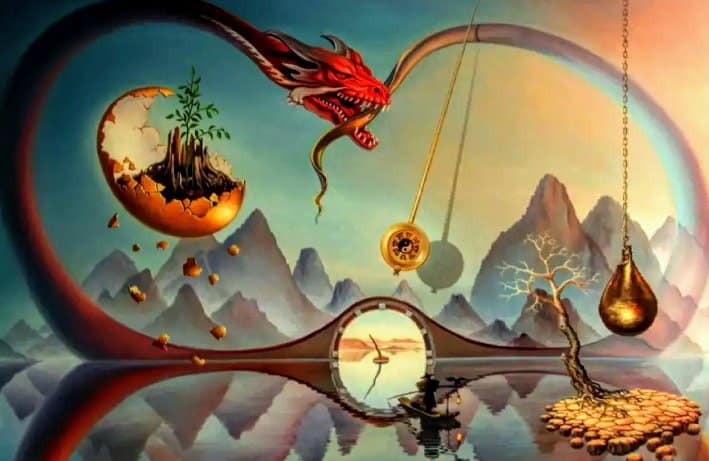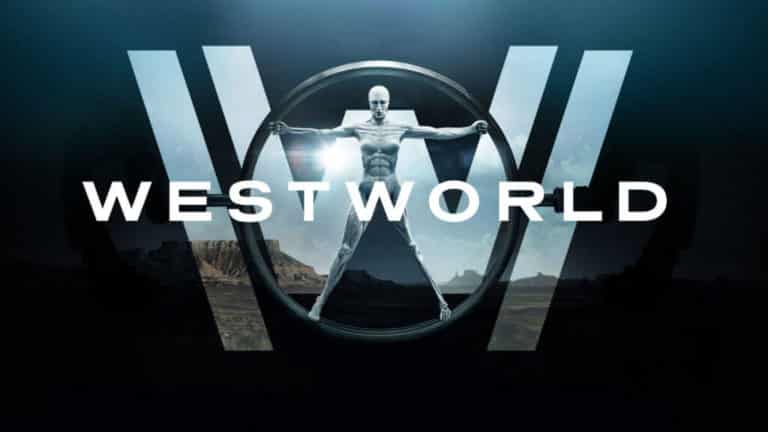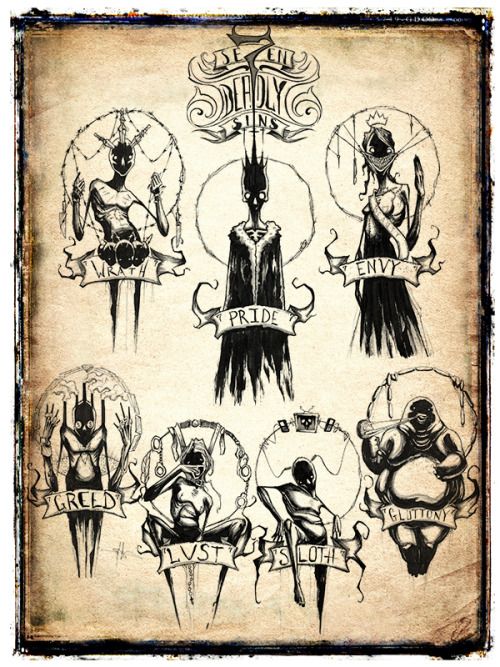The Midnight Gospel Review: Imaginative, Meaningful
This is a The Midnight Gospel review, Netflix’s newest hit animated series. The Midnight Gospel, created by comedian Duncan Trussell and Adventure Time creator and animator Pendleton Ward, is a near perfect show that provides not only stunning animation, but the philosophical and spiritual content the world needs in these increasingly tempestuous times.
Let’s talk about the show itself first. The show has an inventive and compelling format, where the meat of the narrative comes from the form of long-form podcast-like discussions that take place inside the vibrant, colorful world of The Midnight Gospel. The protagonist of the series, Clancy, is a minimalist, multiverse traveling spiritual vagrant who lives in a trailer in some far-futuristic hub of reality. Clancy enters his multiverse simulator to interview the inhabitants of a variety of diverse and strange universes.
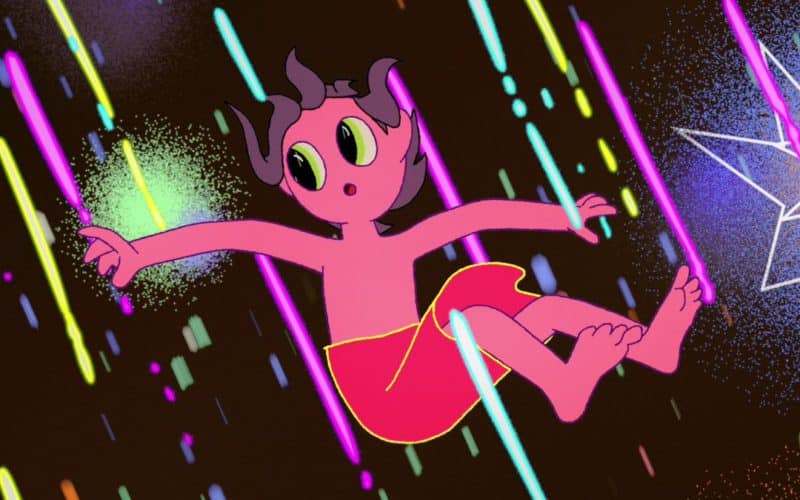
There are a multitude of intertwined narratives that move forward in each episode. There is the narrative of the world itself, playing out mostly in the form of surreal and imaginative animation surrounding Clancy during his interview, the ideas of the discussions themselves, and the story of the character Clancy in his ‘real’ world hub. Clancy’s spacecast, it turns out, is a bit of an underground bootleg radio station — he’s poor, unknown, and has only a single follower; his multiverse simulator is stolen, and he’s ignoring his family’s calls.
This narrative takes a bit of a backseat to the self-contained episodic nature of the show, wherein Clancy hosts these interviews amidst the weird and often chaotic happenings of the interesting worlds in which they take place. These two aspects of the show combine in a way that creates something much greater than the sum of their parts. The animation provides action and visual intrigue to keep the viewer invested in the deep, often esoteric conversations while also supporting the point of the conversations through visual imagery; and the conversations themselves add context and explanation to the animated sequences that, without context, would be incomprehensible in their acid-trip-like strangeness.

The conversations that Clancy has in his spacecast touch on a number of interesting philosophical and spiritual subjects, such as the similarities and differences between high magic as practiced by people like Aleister Crowley compared to the Eastern tradition of Buddhism, to which Clancy loosely ascribes. It touches on mindfulness and presence, coming to terms with impermanence, Hinduist concepts of dharma, and much more. These are concepts that enrich the human spirit and here, they come packaged in a form that can make them digestible, interesting and fun to mainstream audiences in a way that traditional reading or discussion would be incapable of.
The visuals of the show are embedded smartly with interesting symbology and references that give weight and foundation to the fun and trippy vibe of the overall show. There are visual references to Gulliver’s Travels, the kabbalist Sephiroth, the concept of a soul being measured against the weight of a feather, and many more. Aside from those types of references, the narratives that play out during each episode are as engaging as they are strange: a knight in a medieval world whose husband has been kidnapped and murdered by an evil king; a President on the run from a zombie apocalypse; a mute prisoner trying to escape confinement; and many more.
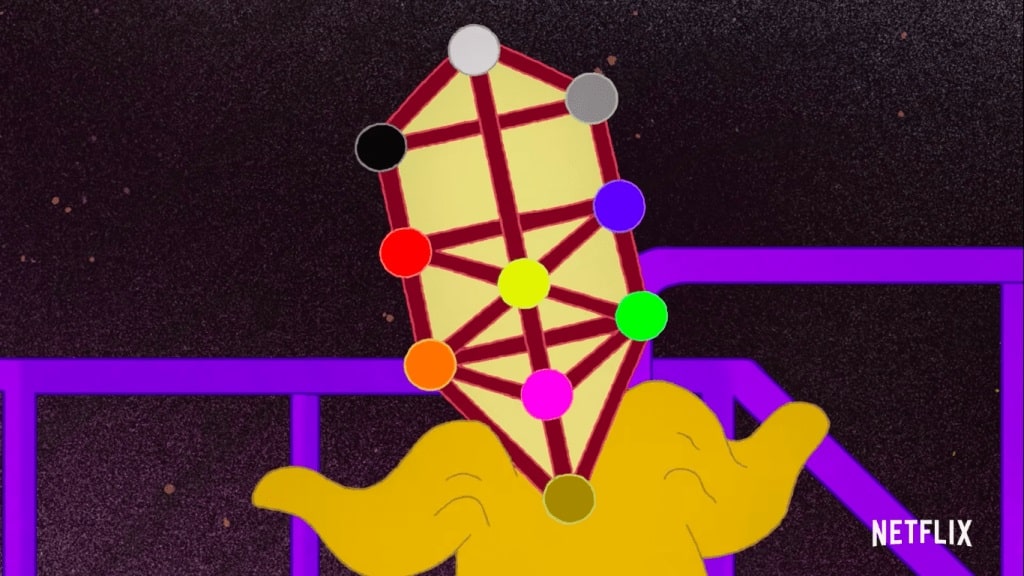
The lore of the world itself is quite interesting as well. In one episode, which takes place in Clancy’s home world, we learn a little bit more about how the multiverse simulator works and what kind of rules make up that reality. In fact, that would be my singular critique of the show. I wish it was 20% longer and that 20% gave us more insight into Clancy as a character and his circumstances outside of the simulator. As I mentioned at the start of the Midnight Gospel review, the show is made of 3 parts: Clancy’s reality, the discussions, and the visuals of the worlds he visits.
The ratio of those things in the show is about 5% Clancy’s reality, with the remaining 95% split between the discussions and the world. I wish they had found a way, without cutting any of the discussions and the world, to bump that ratio up to 15% Clancy’s reality, because I was so interested in what was going on there that I wanted to learn more about it, even though I firmly agree that vast majority of the show should be in its episodic, discussion-based format
This is a new type of show, it really is. It’s very original and inventive, not only in its structure, but in its subject matter. It hasn’t been since the mid 90s when the Matrix movies (at least the first one) broke into the mainstream with a satisfying mix of philosophical content satisfyingly mixed together with mainstream appeal, that a show like this has broken through into the public consciousness. In a content-landscape dominated by focus groups adventures, watered down to appeal to mainstream audiences, The Midnight Gospel is a breath of fresh air.
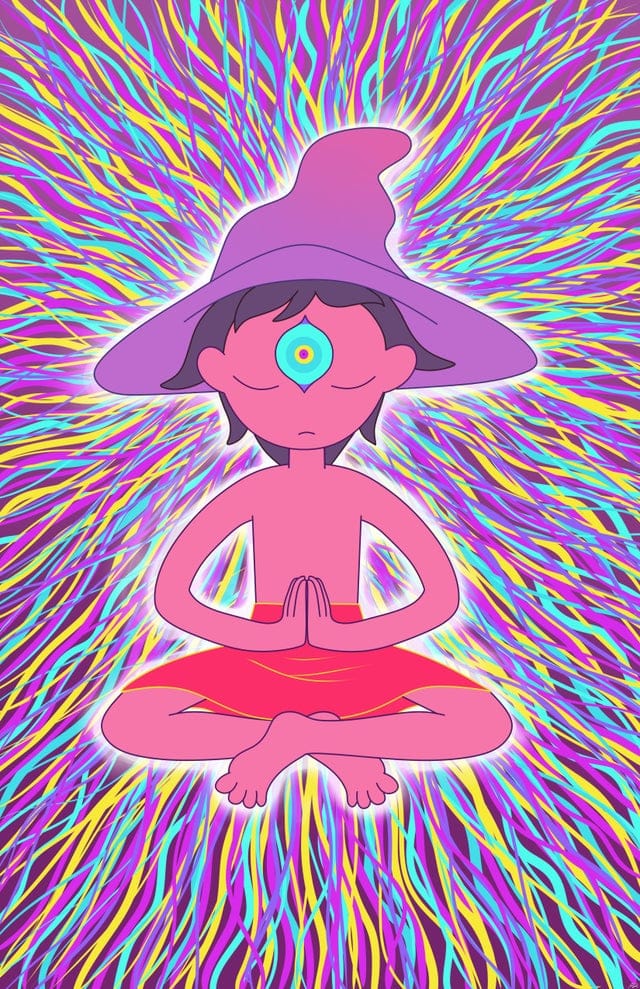
The Midnight Gospel invites comparisons to Rick and Morty that I feel I should definitely touch on in my review. I almost view it as something like a sequel; a world where Rick’s multiverse technology has trickled down to be accessible to common people and people, now able to comprehend how he sees and views the world, are collectively beginning to understand how to cope with the nihilism inherent in the concept of a reality so infinite its indistinguishable from imagination, where the only constant between any kind of existence is the source of human experience: suffering, love, pain, joy, freedom, imprisonment, etc.
I think this is a type of show, both in its execution and in its content, that the world is begging for in this day and age. With the internet, we’re inundated with the painful realities of the world. Rising suicide rates, outrage and cancel culture, war, poverty, Australia burning, global plague, and everything else. All that pain. And we have so much anxiety about the future. Rising income inequality, the devastating effect that automation will have on people’s lives in our existing economic system, the question of what AI will do once it’s fully loosed upon the world. And this show cuts through all that noise, and shows us where the true center of it all needs to be: in those constants of human experience. In that coping with suffering, love, pain, joy and all the rest.
So, when it comes to the Midnight Gospel review, do I recommend it? Not only do I recommend that you watch The Midnight Gospel, I recommend that you show it to as many people who’ll listen, and spread it as far and wide around the world as it can go.
That’s it for my Midnight Gospel review. Ryan Night out. Click here for more TV and Movie Reviews.

